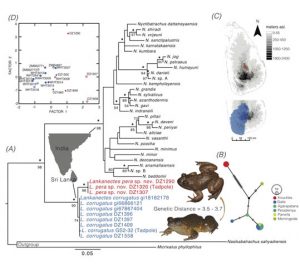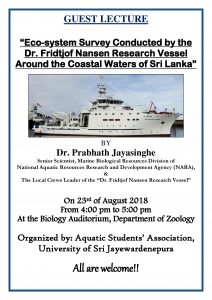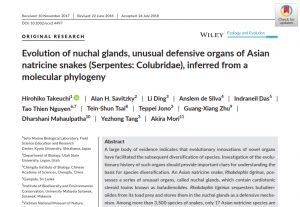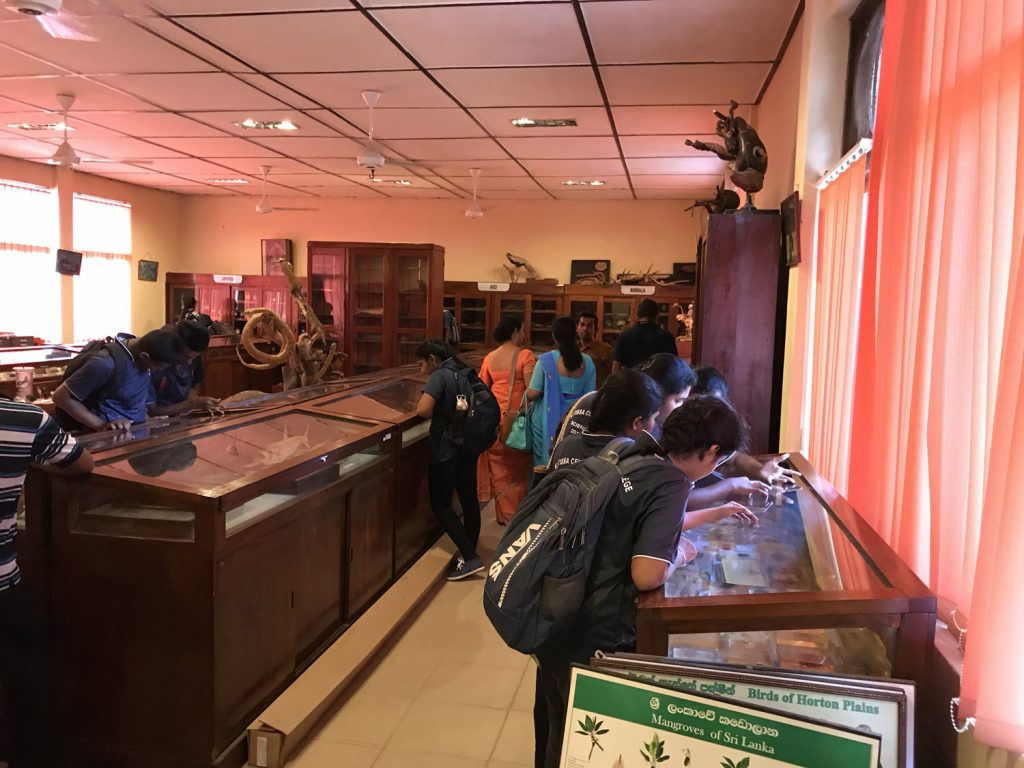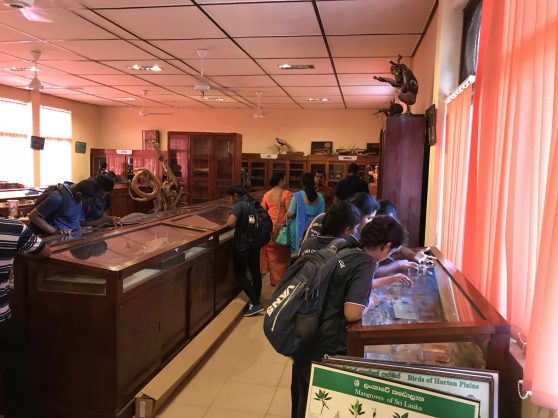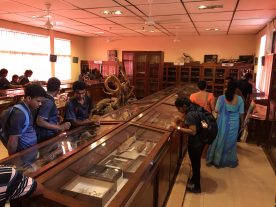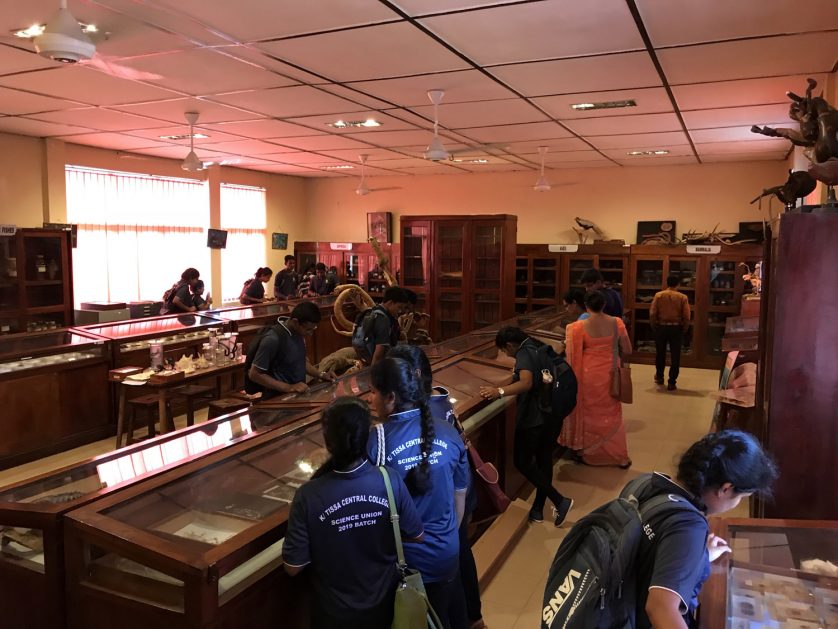Authors: Gayani Senevirathne, VAMPK Samarawickrama, Nayana Wijayathilaka, Kelum Manamendra-Arachchi, Gayan Bowatte, DRNS Samarawikrama, Madhava Meegaskumbura
Journal: Zootaxa
The monotypic genus Lankanectes, considered an evolutionary long branch with India’s Nyctibatrachus as its sister lineage, is represented by L. corrugatus, a species widely distributed within the wet zone of Sri Lanka up to 1500 m asl, where it inhabits a variety of lotic and lentic habitats. Here, following an integrative taxonomic approach using DNA-based phylogenies, morphology, morphometry, and ecological niche models, we describe a new species—Lankanectes pera sp. nov. The new species is distinguished from its sister species mainly by its tuberculated throat and absence of dark patches on venter, throat, manus and pes. The uncorrected genetic distances between the two Lankanectes species for a fragment of the noncoding mitochondrial 16S rRNA gene is 3.5–3.7%. The new species has a very restricted climatic distribution with a total predicted area of only 360 km2 (vs. 14,120 km2 for L. corrugatus). Unlike L. corrugatus, which prefers muddy substrates and marshy areas, the new species is observed inhabiting only pristine streams flowing through canopy covered montane forests in the highest reaches of the Knuckles Mountain range. The specialized new species will need immediate conservation attention due to its restricted distribution (montane isolate), specialized habit of inhabiting clear mountain streams, and small population size.
